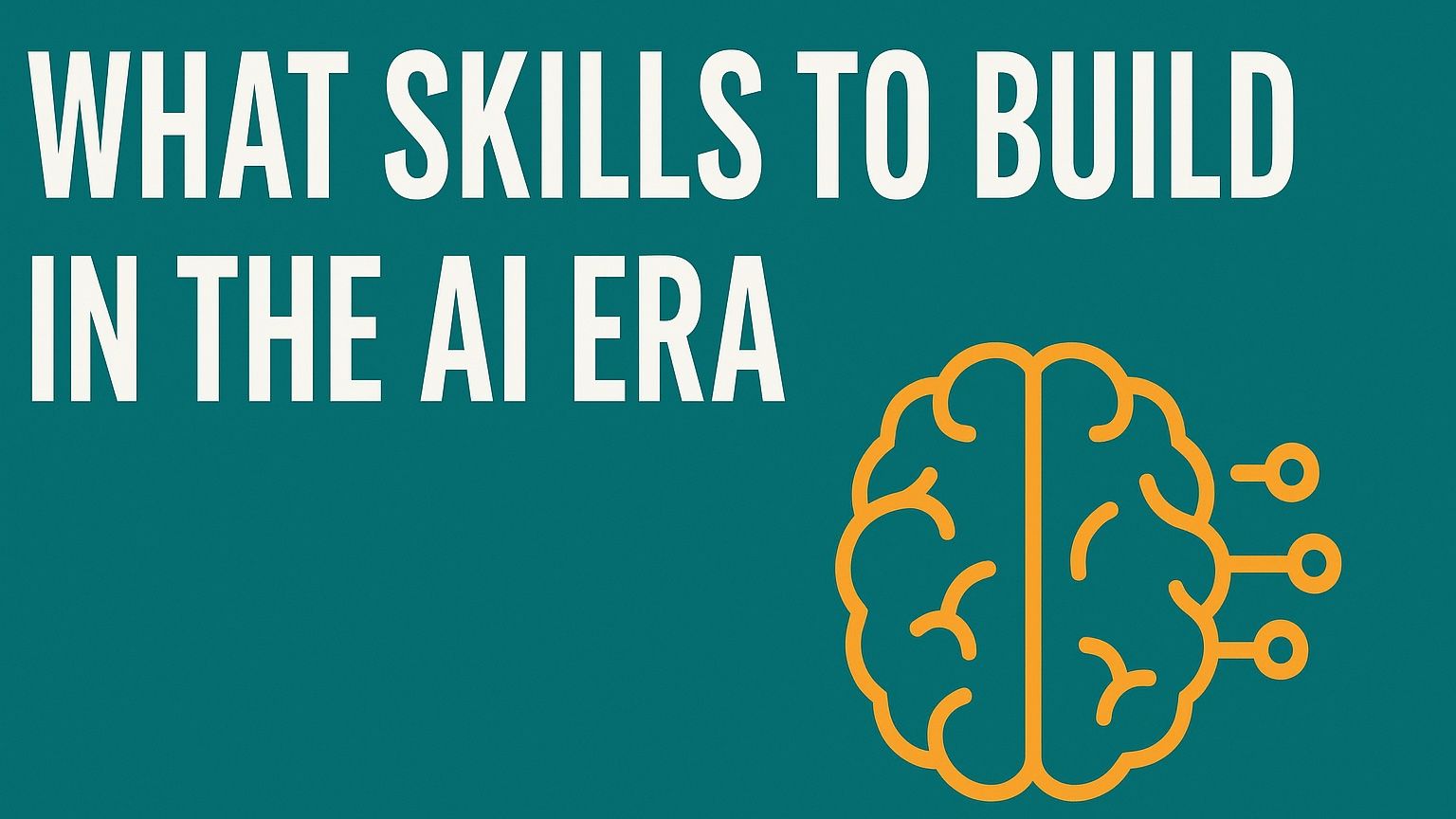
AI is here, and it’s doing a great job at handling the “how”, the nuts and bolts of the work we used to do. But when it comes to the “what” and “why,” AI’s still scratching its metallic head. It can build your next website, optimize your emails, or even draft a presentation. But ask it, "What problem should I solve next?" or "Why does this matter?" and it might just blink in confusion. So, while AI handles the repetitive tasks, we humans get to focus on what really makes us unique.
AI: A Pro at “How,” Not “What”
AI is like that one friend who can follow instructions to the letter but can’t figure out what to do when left to their own devices. It's fantastic when you give it a recipe (e.g., "build a neural network" or "optimize a marketing campaign"). But the tricky part? Deciding which recipe to follow in the first place. AI doesn’t have a purpose beyond its programming and training data, nor does it have the intuition to sense a shift in trends or a customer need that hasn’t been addressed. So, while it can help with “how” and “what”, the vision and direction is still pretty much on us.
As Steve Jobs put it, “It’s not the tools you use. It’s what you do with them.” That’s where we come in. While AI is busy handling the mechanics, it’s up to us to set the goals and steer the ship.
Focus on the “What” and “Why”
So, if AI is handling the “how,” what should we humans focus on? The answer is simple: the “what” and “why.” What problems should we focus on? Why do they matter? These are the big-picture questions that require us to think beyond the task at hand and see the broader implications.
Albert Einstein famously said, “If I had an hour to solve a problem, I’d spend 55 minutes thinking about the problem and 5 minutes thinking about solutions.” The point? It’s not just about solving problems. It’s about understanding which problems are worth solving in the first place. In the age of AI, our greatest asset is our ability to evaluate and prioritize, not just execute.
This is exactly the underlying reason why junior engineers struggle to land jobs these days. Their skills were more focusing on the "how", which had strong demand before, but not anymore thanks to AI.
Building the Skills for the “What” and “Why”
Now that we’ve realized we need to focus more on the “what” and “why,” how do we actually build those skills? It starts with the fundamentals skills that AI can’t replicate yet. As a result, my prediction is that the bar for "soft-skills" during hiring and interviews will go up in the next few years. Here are a few:
-
Critical Thinking: We need to ask the right questions. Is this problem worth solving? Is there a better way to approach it? As Socrates famously said, “The unexamined life is not worth living.” In the AI era, we could say, “The unexamined problem is not worth solving.” It’s our job to evaluate which problems are worth our (and AI's) time and attention before jumping into solutioning.
-
Strategic Thinking: While AI handles execution, we need to map out the direction. As Warren Buffett wisely put it, “The difference between successful people and really successful people is that really successful people say no to almost everything.” Focus on the most important problems, the ones that align with long-term goals.
-
Empathy: Although AI can pretend to "feel", but it doesn’t really to it and we know it. That’s where we come in. Understanding human needs, emotions, and desires is an invaluable skill. As Maya Angelou said, “People will forget what you said, people will forget what you did, but people will never forget how you made them feel.”
-
Storytelling: AI can generate data and stories in its literal meaning, but the main idea of the stories still need to come from human because it's based on "what" and "why". Take the example of Howard Schultz, the former CEO of Starbucks. When Schultz first joined the company, he saw the potential for Starbucks to be more than just a coffee shop. He famously shared the story of his trip to Italy, where the café culture inspired his vision for Starbucks as a "third place" between work and home. Schultz didn’t just sell coffee; he sold a vision and a lifestyle, a narrative of community and connection over a cup of coffee. His personal story and his experience shaped the Starbucks brand, something that an AI could never replicate.
-
Interpersonal Skills: AI can’t build relationships. Only humans can do that. The future is about collaboration, negotiation, and teamwork.
In short, AI is revolutionizing the way we work, but it isn't changing the meaning of the work or replacing what makes us human. By honing skills like the above, we can focus on the “what” and “why” while letting AI handle the “how”. After all, as we navigate the AI era, it’s not just about what we do, but why we do it and how we do it together.
Subscribe to Newsletter
Get bi-weekly curated articles, tips, and resources for career success delivered to your inbox:



